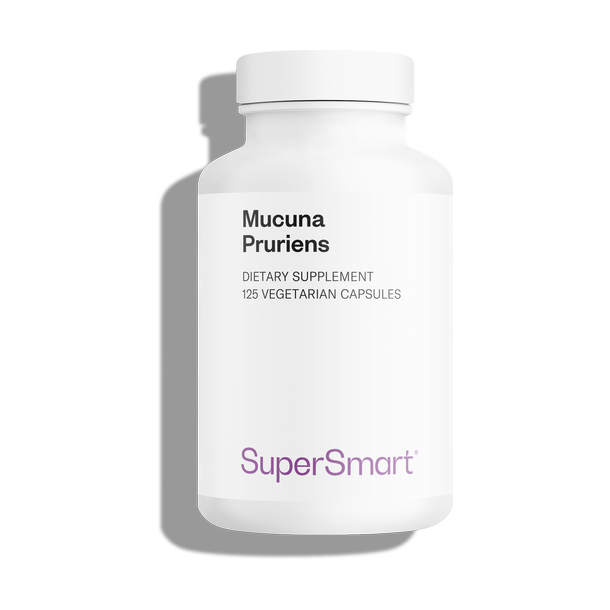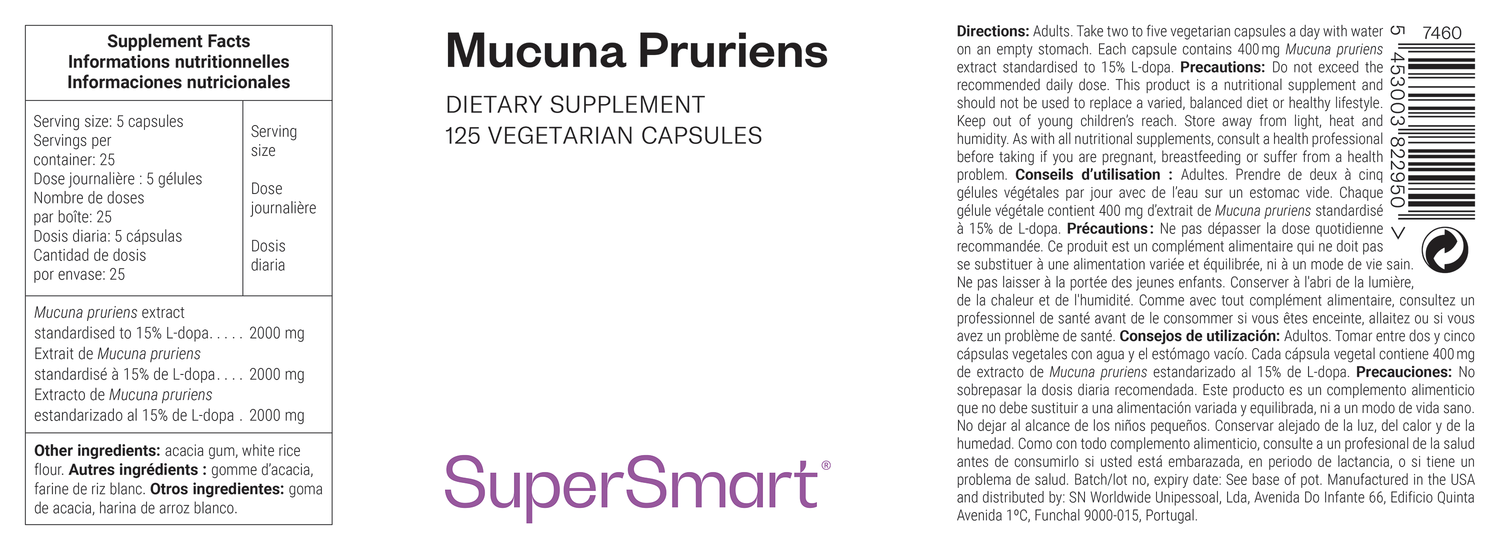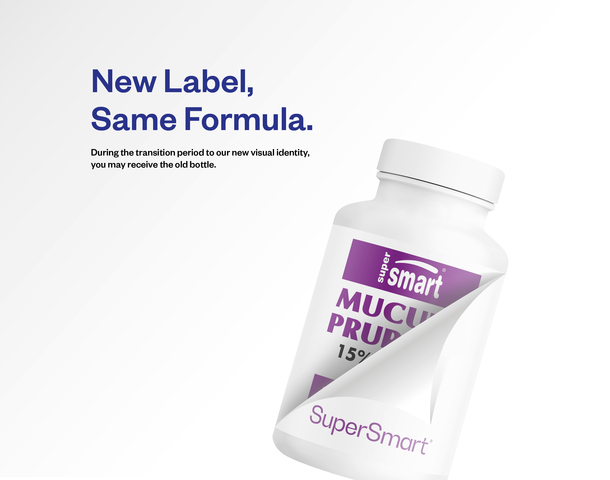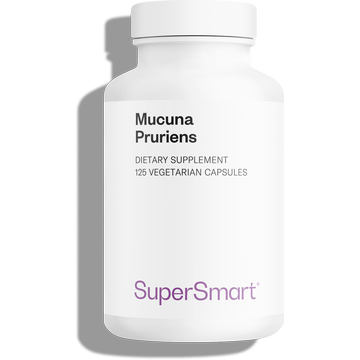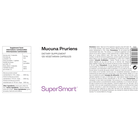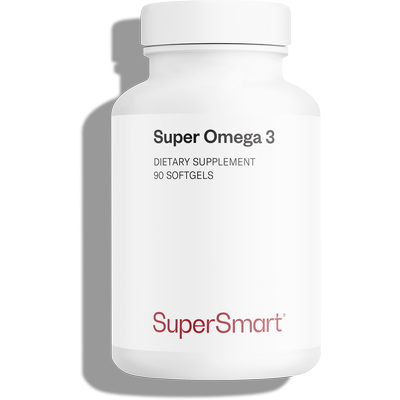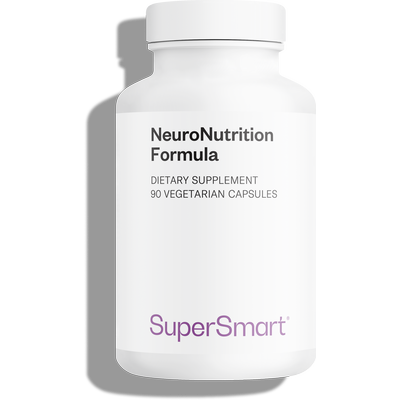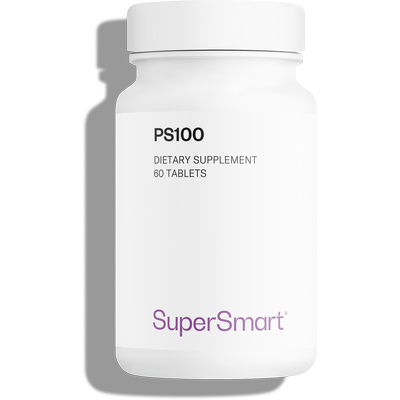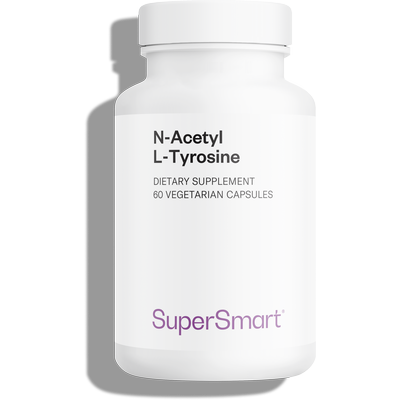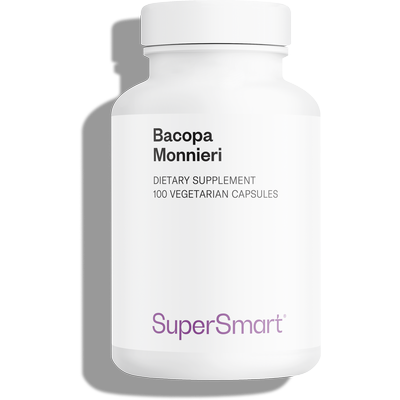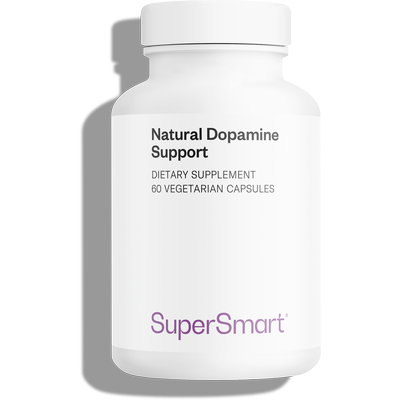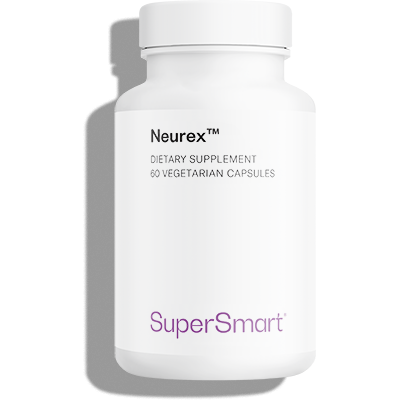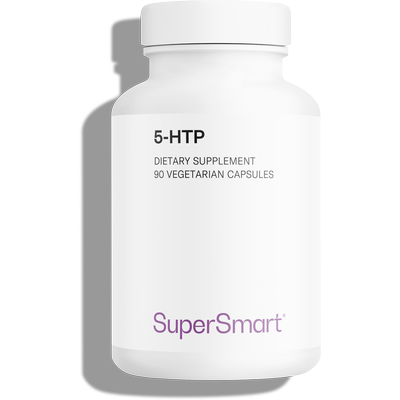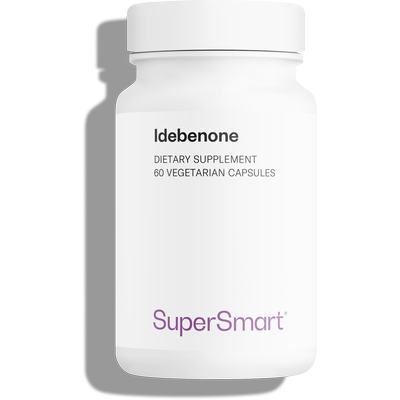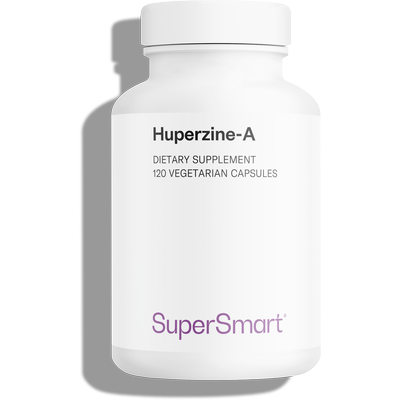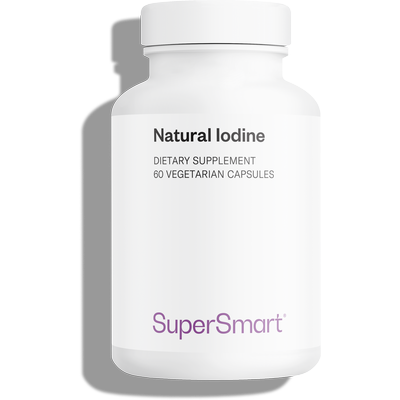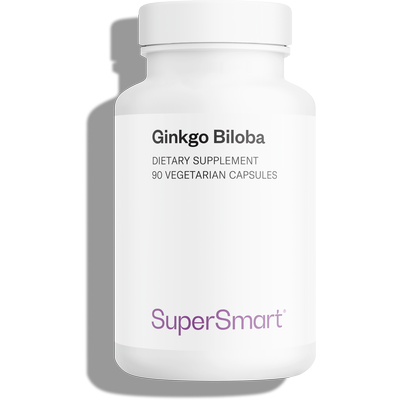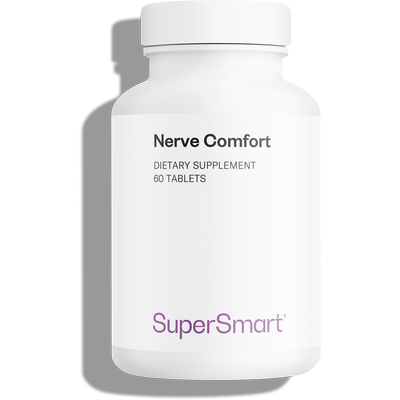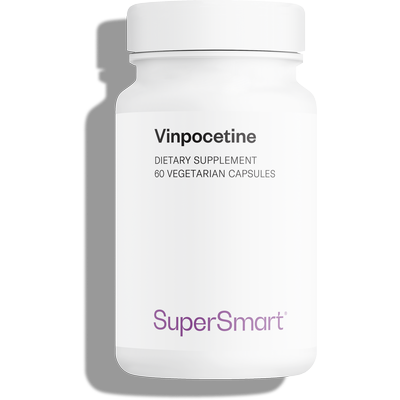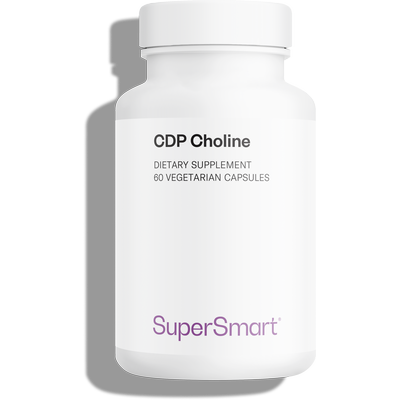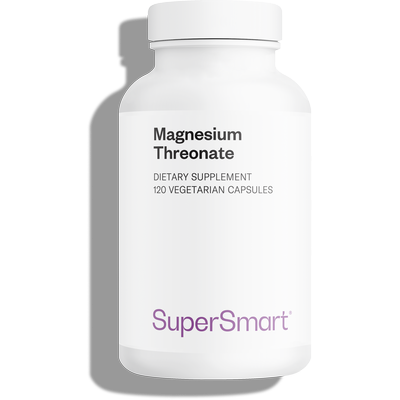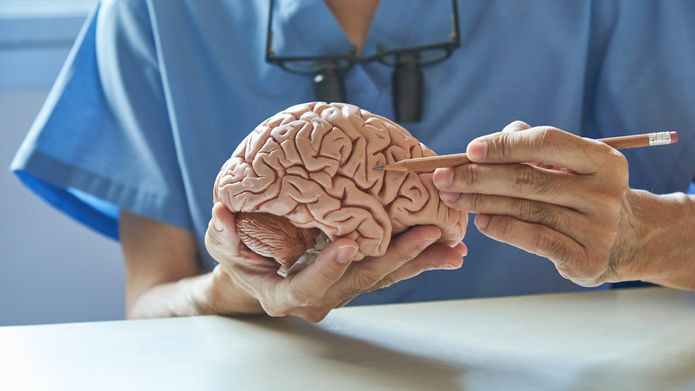Complete your selection
Mucuna pruriens 400mg is a dietary supplement containing Mucuna pruriens, a plant used in Ayurvedic medicine to treat neurodegenerative diseases and neuro-inflammation.
It is one of the best natural sources of L-dopa, the dopamine precursor, and contains several active ingredients which increase its efficacy: ursolic acid, betasitosterols, prurenienine and prurienidine.
What exactly is Mucuna pruriens?
Mucuna pruriens is a leguminous plant from Asia, commonly referred to as velvet bean, and part of the Fabaceae family. It is one of the best sources of L-dopa (4-5%), the precursor of dopamine.
But what marks it out is the number of molecules it contains which maximise the effects of the L-dopa, such as dopamine decarboxylase inhibitor (1) and various alkaloids like prurienine, prurieninine and prurienidine (2).
It also contains specific proteins (globulins and albumins) , beneficial fatty acids (oleic, linoleic and palmitic acid) (3), NADH (a co-factor important for health), coenzyme Q10 and highly beneficial sterols (ursolic acid, betasitosterols) (4).
What advantages does Mucuna pruriens offer over L-dopa alone?
Mucuna pruriens extracts have become increasingly popular over recent years, and there are several reasons for this.
The extracts contain L-dopa and natural molecules which act synergistically to maximise its effect. One clinical study showed that the levodopa in Mucuna was 2-3 times more powerful than the same amount of levodopa alone.
Unlike Mucuna pruriens extracts, clinical studies have suggested that the use of levodopa alone leads over the long term to dyskinesia (abnormal involuntary movements) (5).
The advantages of Mucuna pruriens are not solely due to its naturally high level of L-dopa. Experimental studies have shown neuronal effects from Mucuna pruriens devoid of L-dopa (6). It may be that NADH, in particular, helps increase endogenous production of molecules including dopamine, levodopa and serotonin (7).
This is an extract traditionally used and recognised by Ayurvedic medicine. In present-day India, Mucuna pruriens seeds have always been used as a powerful anti-inflammatory (8) and as a complementary treatment for many conditions associated with ageing of the joints and age-related cognitive impairment (9). They are also used as aphrodisiacs.
What is in it Mucuna Pruriens
Any questions?
Scientists have been interested in Mucuna pruriens for some years now and there is an abundance of scientific literature on its neuroprotective properties (10). Several studies suggest that it helps to inhibit inflammatory responses in the microglia, a population of glial cells and macrophages present in the central nervous system (brain, spinal cord and retina), which form the main active immune defence of the central nervous system.
In certain neurodegenerative problems, the microglia releases large amounts of nitric oxide in the brain following repeated inflammatory damage (11). This abnormal level of nitric oxide may be related to the development of certain diseases and the degeneration of dopaminergic neurons in a specific region of the brain called the striatum. The only molecule which produces symptomatic relief from this chronic neuroinflammation is levodopa, the dopamine precursor, though it cannot be considered for long-term use because of side-effects after several years’ use.
Numerous studies have established that Mucuna pruriens extracts are safe to use, even at very high doses (15-30g compared with the 0.3g dose in the extract offered here) and over many weeks (12).
Trials have also shown a significant reduction in the development of dyskinesia when compared with the use of L-dopa alone.
However, it is not recommended in the case of:
- cardiovascular problems
- hypotension
- diabetes
- cancer
- ulcers
- psychiatric problems
- pregnancy and breastfeeding.
You should also consult a health professional if you are on any anaesthetic, anti-depressant, anti-psychotic, blood pressure-lowering or blood glucose-lowering treatment. It should also be noted that vitamin B6 may reduce the efficacy of the levodopa in velvet bean.
A daily dose of 2-5 capsules of Mucuna pruriens extract should be taken with water on an empty stomach.
For optimal efficacy, it is also a good idea to adopt the following measures throughout the supplementation period:
- Use complementary therapies which are scientifically-supported or recommended by your health professional. More than 40% of people affected by neurodegenerative problems use some kind of complementary treatment such as supplementation, acupuncture, tai chi, art therapy ... (13). These approaches may help increase endogenous dopamine in the brain (14) while reducing levels of cortisol, the stress hormone (15).
- Stay physically active.
- Take advantage of massage. It’s one of the most widely-used alternative strategies (16). It includes, for example, reflexology, a discipline which draws on the principles of traditional Chinese medicine, and Trager, a body-mind approach designed to release physical and mental tension.
- Benefit from music. Listen to music that you find inspiring, sing, dance, or play an instrument: such activities have many beneficial effects on balance and gait (17-18), and help release endogenous dopamine which may provide temporary relief from motor symptoms.
- Avoid factors known to have adverse effects on cognitive function such as smoking, poor mental stimulation and chronic stress.
- Be scrupulous with your diet. There are numerous studies highlighting the association between nutrition and ageing of the brain (19-20). It’s hardly surprising that the brain only functions correctly when it it properly nourished. Oxidative stress increases significantly with age, as a result of a gradual decline in endogenous (produced by the body) antioxidant production. You should therefore increase your consumption of fresh fruit and vegetables, and ensure you obtain an optimal intake of zinc, selenium, vitamin C and vitamin E, the micronutrients in which deficiencies are most common (21-22).
- Try to choose organic foods. Prolonged exposure to chemical pollutants or pesticides, including herbicides and insecticides (such as rotenone), is a recognised risk factor for Parkinson’s disease.
- Alternate with other neuroprotective supplements, for example, extract of Ginkgo biloba, which helps to normalise cognitive function, or the antioxidant coenzyme Q10, levels of which are lower in those affected by neurodegeneration.
august 26 2023
Bon anti-dépresseur naturel
august 16 2023
Top Top ! Super Smart super best !
may 22 2023
Produit conforme à la description
february 23 2022
naturel et efficace
december 6 2021
I am so a returning customer and i am very happy with mucuna
Need help?
You may also like

